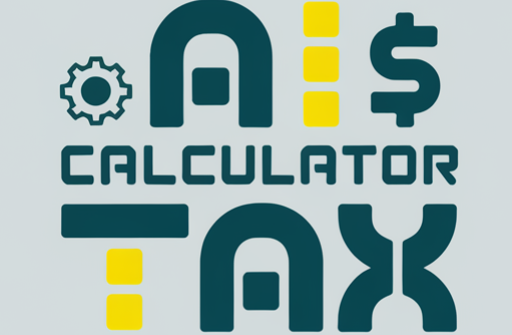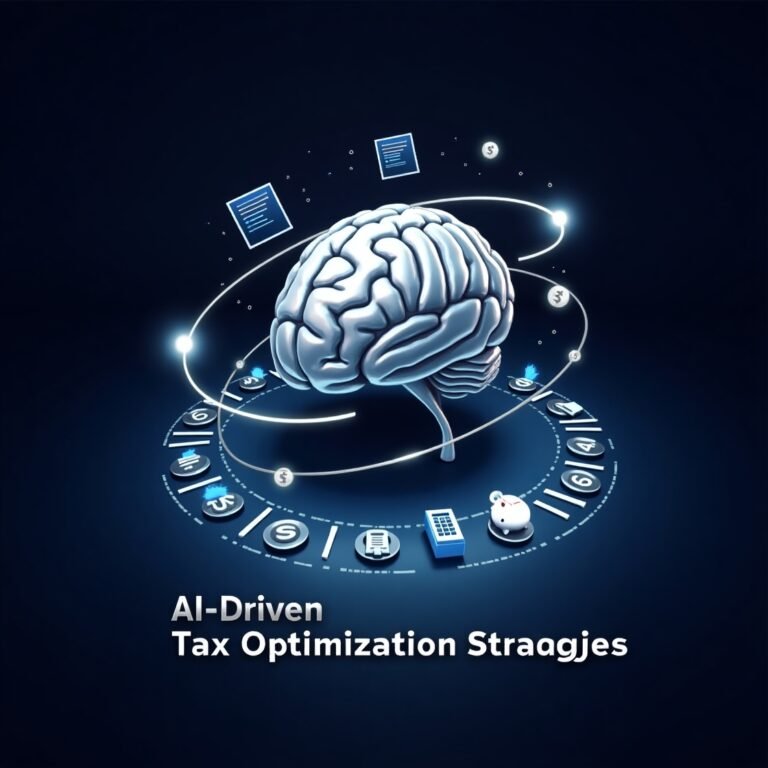Introduction
Artificial Intelligence is revolutionizing tax planning by identifying savings opportunities, minimizing liabilities, and ensuring compliance. AI-powered tools analyze vast financial data sets in real-time, providing personalized tax strategies that were once only available to high-net-worth individuals with dedicated tax advisors.
This guide explores how AI-driven tax optimization can maximize deductions, minimize liabilities, and ensure efficient wealth management. Whether you’re an individual taxpayer or a business owner, integrating AI into tax planning can lead to significant financial benefits.
AI for Finding Hidden Tax Deductions
AI-driven tax software scans transactions and financial statements to uncover deductions that often go unnoticed. By analyzing historical tax filings and real-time financial data, these systems identify patterns and suggest potential write-offs based on IRS regulations and evolving tax codes.
Key Features of AI-Powered Deduction Identification
- Uses machine learning algorithms to detect deductible expenses.
- Identifies business expenses, medical costs, and home office deductions.
- Continuously updates based on IRS rule changes.
AI for Tax Loss Harvesting
Tax loss harvesting involves selling underperforming investments to offset capital gains. AI optimizes this process by:
- Analyzing portfolio data to identify tax-efficient trades.
- Suggesting alternative investments to maintain asset allocation.
- Predicting market trends to time tax-loss harvesting opportunities effectively.
AI and Real-Time Tax Adjustments
Traditional tax planning is often retrospective, leading to missed opportunities. AI enables real-time adjustments by:
- Monitoring income fluctuations and adjusting estimated tax payments.
- Suggesting strategic deductions and deferrals throughout the year.
- Identifying IRS audit risks before filing.
AI Tax Strategies for High Earners
High-income individuals face complex tax regulations. AI helps optimize tax strategies by:
- Implementing income splitting and trust-based strategies.
- Recommending alternative investment structures for tax deferral.
- Identifying international tax-saving opportunities.
AI-Powered Tax Bracket Management
AI ensures taxpayers remain in the most favorable tax bracket by:
- Distributing income strategically across multiple tax years.
- Suggesting deferred compensation plans.
- Optimizing 401(k) and IRA contributions to reduce taxable income.
AI for Estate Tax Planning
Estate taxes can significantly impact generational wealth. AI aids estate planning by:
- Identifying tax-efficient wealth transfer strategies.
- Optimizing trust structures to minimize estate taxes.
- Suggesting charitable giving methods to reduce taxable estate value.
AI for Optimizing Retirement Tax Contributions
AI-driven retirement tax planning ensures maximum savings by:
- Recommending Roth vs. traditional IRA contributions based on future tax projections.
- Identifying optimal withdrawal strategies to minimize taxes in retirement.
- Adjusting contributions based on inflation and market performance.
AI for Reducing Tax Liability Legally
AI ensures compliance while minimizing tax liability by:
- Analyzing legal tax loopholes and incentives.
- Structuring income to take advantage of deductions and exemptions.
- Preventing overpayment of taxes through accurate calculations.
AI and Tax Credits Maximization
Many taxpayers miss out on credits due to lack of awareness. AI identifies and applies for credits such as:
- R&D tax credits for businesses.
- Education and child tax credits for individuals.
- Energy efficiency tax credits for homeowners and businesses.
AI for Smart Tax Investment Strategies
AI integrates tax planning with investment strategies by:
- Optimizing tax-efficient asset allocation in investment portfolios.
- Identifying tax-advantaged accounts such as HSAs and 529 plans.
- Suggesting municipal bonds and ETFs with tax-free benefits.
Frequently Asked Questions (FAQs)
How does AI help with tax planning?
AI automates tax optimization by analyzing financial data, identifying deductions, and predicting tax-saving strategies.
Is AI-driven tax planning only for high earners?
No, AI tools are available for individuals and businesses of all income levels, offering tailored strategies for different financial situations.
Can AI help reduce the risk of an IRS audit?
Yes, AI detects potential red flags and ensures compliance with tax regulations, reducing audit risks.
Are AI tax tools better than human tax advisors?
AI enhances tax planning by handling large datasets and providing real-time insights, but human advisors offer strategic decision-making and personalized service.
What’s the best AI tool for tax optimization?
The best AI tax tool depends on your needs. Popular options include TurboTax AI, H&R Block AI, and enterprise tax software like Avalara.
Does AI tax planning work for small businesses?
Yes, AI identifies deductions, automates bookkeeping, and optimizes tax strategies for small business owners.
Is AI tax planning legal?
Yes, AI follows IRS guidelines and ensures compliance while maximizing tax efficiency.
Conclusion
AI-driven tax optimization provides individuals and businesses with powerful tools to maximize deductions, minimize liabilities, and ensure compliance. By leveraging AI for real-time tax planning, hidden deduction discovery, and investment strategies, taxpayers can significantly improve their financial outcomes.
As AI technology evolves, tax strategies will become even more efficient, making tax optimization accessible to everyone—from high earners to small business owners. Implementing AI tax tools today ensures a smarter, more proactive approach to financial planning.


1 thought on “AI Driven Tax Optimization Strategies”